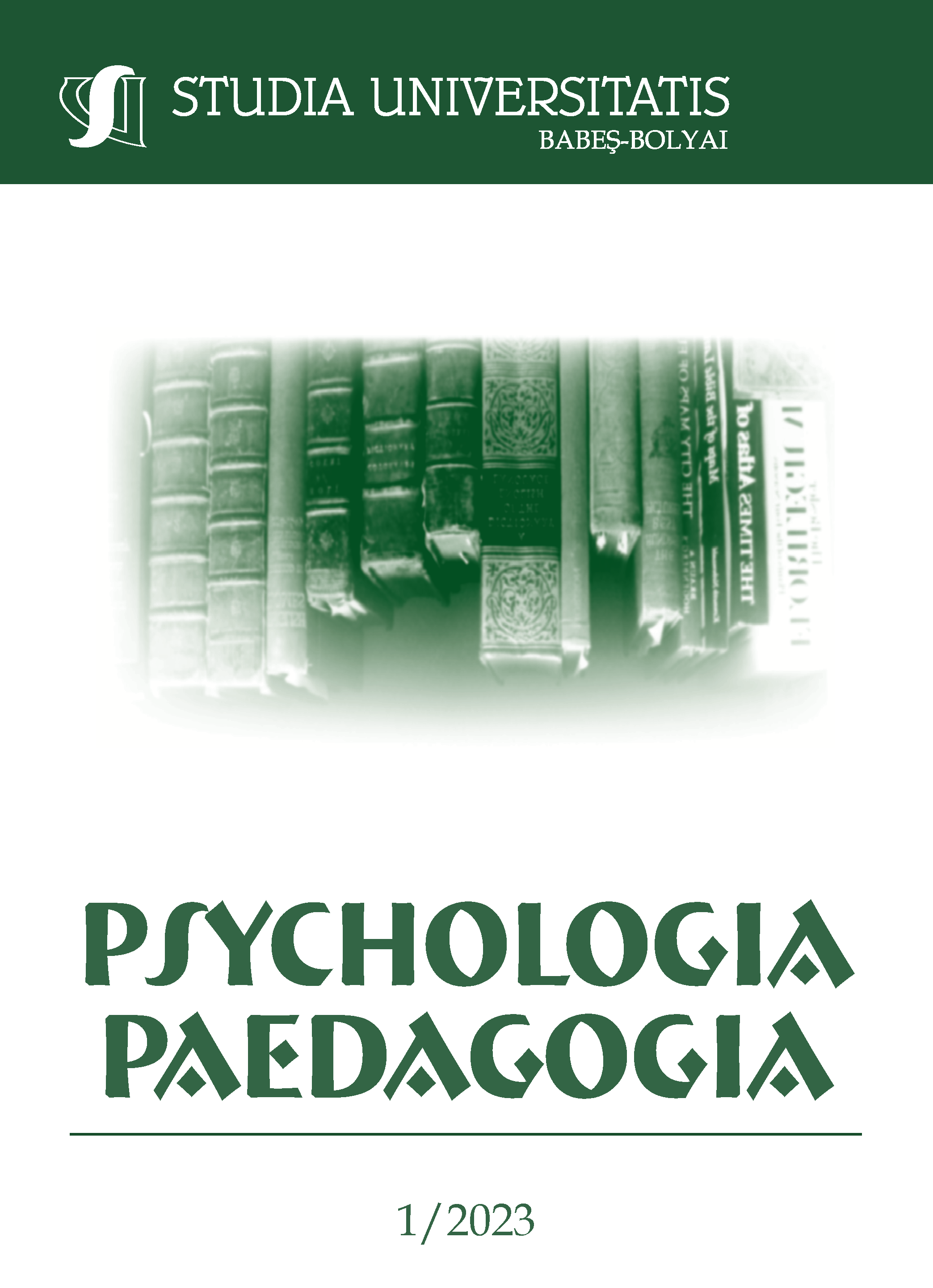Teaching applications of mathematics: The effect of the intervention on the participating teachers
DOI:
https://doi.org/10.24193/subbpsyped.2023.1.05Keywords:
applications of mathematics, attitudes towards teaching mathematics, mathematics teachersAbstract
The purpose of this study is to examine the effect of the intervention with teaching applications of mathematics in other disciplines on teachers` attitudes towards teaching applications of mathematics. The research was conducted in the 2021-2022 school year in Israel and a two-groups pretest-posttest quasi-experimental research design was used. The participants were four classes (two of them are 11th grades and two are 12th grades) with four teachers at Al-Bukhari High School in Arraba city in northern Israel. The research instruments were three interview guides. The first interview was conducted before the intervention with all the 4 teachers and it contained 16 questions about their attitudes toward teaching mathematics and applications of mathematics. The second and third interview was similar and it was conducted during respectively after the intervention with the teachers in the experimental group. These interviews contained 5 questions related to teaching applications of mathematics in other disciplines. The results of the study showed that teaching applications of mathematics in other disciplines has a positive effect on teachers. Before the intervention, the teachers taught using the standard method, and they rarely taught applications. The teachers were not qualified enough to teach applications of mathematics and were not aware of the advantages of teaching applications of mathematics. By the intervention teachers were exposed to the inclusion of applications in teaching mathematics, and their attitudes towards teaching applications of mathematics improved and their level of confidence to teach applications increased significantly (increased from 7 to 9 on a scale from 1 to 10). That means, the intervention helped the teachers to teach the applications of mathematics successfully and with self-confidence. Furthermore, despite the difficulties and the obstacles in teaching applications of mathematics in other disciplines, teachers liked to teach the applications of mathematics and were satisfied with the results and the change among the students. They reported that they would implement the teaching applications of mathematics in other disciplines in all classes that they teach and would recommend it to their fellow teachers.References
Amato, S.A. (2004). Improving student teachers` attitudes to mathematics. Group for the Psychology of Mathematics Education, 2, 25–32.
Asli, A. & Zsoldos-Marchis I. (2021). Teaching Applications of Mathematics in other disciplines: Teachers` Opinion and Practice, Acta Didactica Napocensia, 14(1), 142-150, https://doi.org/10.24193/adn.14.1.11.
Asli, A. & Zsoldos-Marchis I. (2022). "Teacher`s attitudes towards teaching mathematics” scale: factor analysis, Proceedings of the 16th International Technology, Education and Development Conference, 10190-10197, https://doi.org/10.21125/inted.2022.2680.
Baturo, A. & Nason, R. (1996). Student Teachers’ Subject Matter Knowledge within the Domain of Area Measurement, Educational Studies in Mathematics, 31(3), 235-268.
Bayturan, S. (2004). Attitudes towards Mathematics of Mathematics Achievement of Secondary School Students, its relationship with psychosocial and sociodemographic characteristics. (Unpublished Master Thesis) Dokuz Eylul University, Izmir.
Clarke, D., & Hollingsworth, H. (2002). Elaborating a model of teacher professional growth. Teaching and Teacher Education, 18(8), 947–967, https://doi.org/10.1016/S0742-051X(02)00053-7.
Guskey, T. R. (1986). Staff development and the process of teacher change. Educational Researcher, 15(5), 5–12.
Karp, K.S. (1991). Elementary school teachers` attitudes towards mathematics: the impact on students Autonomous learning skills. School of Education Adelphi University. Garden City, New York.
Ma, X. (1997). Reciprocal relationships between attitude toward mathematics and achievement in mathematics. The Journal of Educational Research, 90(4), 221-229.
Maria, C. (1992). Primary Teachers` attitudes towards mathematics and mathematics teaching with special reference to a logo-based in-service course. Institute of Education, University of London.
Relich. J., Way, J., & Martin, A. (1994). Attitudes to Teaching Mathematics: Further Development of a Measurement Instrument, Mathematics Education Research Journal, 6, 56-69.
Reyes, L. H. (1984). Affective variables and mathematics education. The Elementary School Journal, 84(5), 558–581, https://doi.org/10.1086/461384
Shkedi, A. (2007). Words of meaning, qualitative research-theory and practice. Ramot Publishers, Tel Aviv University, Israel.
Skemp, R. R. (1976). Relational Understanding and Instrumental Understanding, Mathematics Teaching, 77, 20-26.
Tuimavana, R., & Datt, N. (2017). Teachers’ Attitude Towards Teaching Mathematics at Upper Primary Levels in Fiji’s Primary Schools: A Case Study of the Western Primary Schools. International Journal of Humanities and Cultural Studies, 3(4), 272-293.
Yildirim, B., Sidekli, S. (2018). STEM Applications in mathematics education: The effect of STEM Applications on different dependent variables. Journal of Baltic Science Education, 17(2), 200-214, https://doi.org/10.33225/jbse/18.17.200
Downloads
Published
How to Cite
Issue
Section
License
Copyright (c) 2023 Studia Universitatis Babeș-Bolyai Psychologia-Paedagogia

This work is licensed under a Creative Commons Attribution-NonCommercial-NoDerivatives 4.0 International License.





